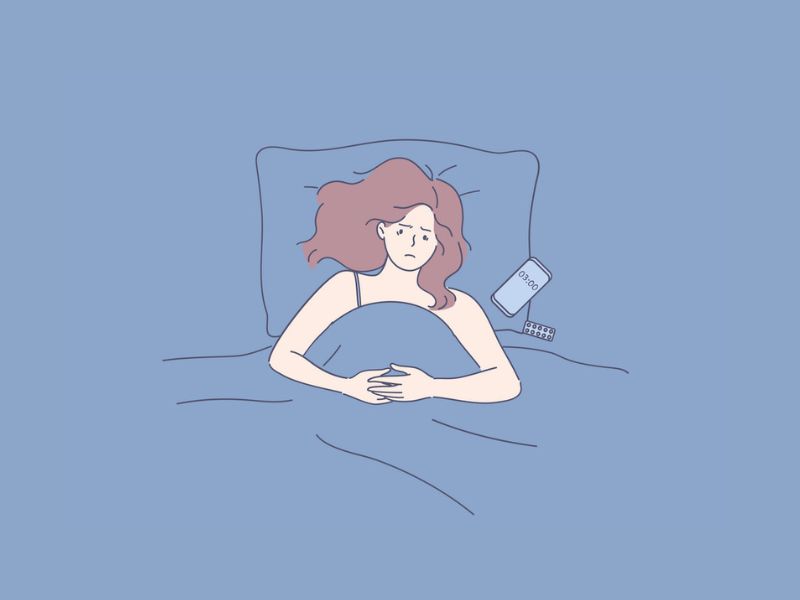Sleep disorders, also referred to as sleep-wake disorders, are medical conditions that can impact the duration, timing, or quality of an individual's sleep, resulting in excessive daytime sleepiness and impaired functioning. These disorders can lead to severe health problems, such as heart disease and diabetes. Recognizing the symptoms of each sleep disorder can assist individuals and healthcare providers in identifying the underlying cause, making a diagnosis, and determining the appropriate treatment.
Types of Sleep Disorder
There are more than 80 types of sleep disorders detected in humans. Some of the most common types of sleep disorders are following:
Insomnia: Insomnia is a sleep disorder characterized by difficulty falling asleep or staying asleep, which is often caused by stress, anxiety, or certain medications. Treatment options for insomnia may include behavioral therapy, medication, or lifestyle changes.
Sleep Apnea: Sleep apnea is a sleep disorder that involves breathing interruptions during sleep, resulting in symptoms such as snoring, gasping, or choking. This condition can lead to severe health problems if left untreated. Treatment typically involves lifestyle modifications, breathing devices, or surgery.
Narcolepsy: Narcolepsy is a neurological disorder that causes excessive daytime sleepiness and sudden sleep attacks. Other symptoms may include hallucinations and sleep paralysis. Treatment for narcolepsy may include medication, adhering to a strict napping schedule, and implementing lifestyle changes to improve sleep hygiene.
Restless Leg Syndrome: Restless Leg Syndrome is a sleep disorder characterized by uncomfortable sensations in the legs, causing difficulty falling or staying asleep. Treatment options for Restless Leg Syndrome may include medication, lifestyle changes, and avoiding triggers such as caffeine or alcohol.
Circadian Rhythm Disorders: Circadian Rhythm Disorders are disruptions in the body's natural sleep-wake cycle, such as jet lag, shift work sleep disorder, or delayed sleep phase syndrome. Treatment options for circadian rhythm disorders involve regulating sleep schedules, light therapy, and medication in some cases.
Hypersomnia: Hypersomnia is a sleep disorder characterized by excessive daytime sleepiness, making it hard to stay awake during the day. It can be caused by sleep apnea, narcolepsy, or certain medications. Treatment options for hypersomnia include medication, lifestyle changes, and addressing underlying conditions.
Sleep Disorder Causes
Sleep disorders can occur due to a variety of factors that can disrupt the body's circadian rhythm, including physical conditions like ulcers, medical conditions such as asthma, psychiatric conditions like depression or anxiety, genetic factors as in the case of narcolepsy, substance abuse such as alcohol, stimulants like caffeine, and certain medications that can interfere with sleep. Irregular schedules that disrupt the body's biological clock and aging can also contribute to sleep disorders, as older individuals may spend less time in deep sleep. The causes of sleep disorders can differ from individual to individual depending on their environment.
Sleep Disorder Treatment
The treatment of Sleep Disorder can be done using various methods depending on the specific type of disorder. Good sleep hygiene practices, including creating a cool, dark, and quiet sleeping environment, an active lifestyle, and a healthy diet, can improve the quality of sleep. Bright light therapy in the morning can help reset the circadian rhythm. Relaxation exercises can also reduce stress and improve sleep quality.
Cognitive behavioral therapy is another treatment option that can challenge stressful thought patterns and help people manage their sleep disorders. For sleep apnea, a continuous positive airway pressure (CPAP) machine is often used. Sleeping pills and natural supplements, such as melatonin, are also available but are generally recommended for short-term use.
Conclusion
If you’re having trouble sleeping or suspect that you might be suffering from a sleep disorder, get connected with Solh Wellness. Solh Wellness focuses on providing individuals with personalized and accessible mental health solutions.
Take a step towards better sleep, better mental health, and a better life. Download the Solh Wellness App now!



